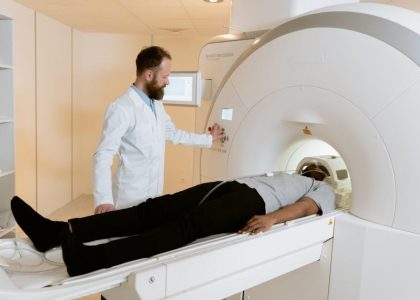The Emotional Dictionary of Diseases is a comprehensive guide exploring the emotional roots of physical ailments. It bridges the gap between emotions and health, offering insights into the psychological origins of various conditions. This resource empowers individuals to understand the emotional dimensions of diseases, fostering holistic healing and self-awareness.
Understanding the Concept of Emotional Diseases
Emotional diseases refer to physical conditions deeply rooted in unresolved emotional trauma, stress, or psychological distress. These ailments manifest when suppressed emotions, such as anger, fear, or grief, disrupt the body’s balance. The Emotional Dictionary of Diseases highlights how emotional states like anxiety or sadness can trigger specific health issues, such as heart disease or immune disorders. By exploring the mind-body connection, this concept emphasizes that emotional well-being is integral to physical health. It encourages a holistic approach to healing, addressing both the psychological and physical aspects of illness. This understanding empowers individuals to identify emotional patterns contributing to their health challenges, fostering deeper self-awareness and paving the way for more comprehensive treatment strategies.
Importance of the Emotional Dictionary of Diseases
The Emotional Dictionary of Diseases serves as a vital tool for understanding the emotional underpinnings of physical illnesses. It provides a detailed mapping of how specific emotions correlate with various diseases, offering insights into the psychological origins of health issues. This resource is invaluable for individuals seeking to comprehend the root causes of their ailments, enabling them to address both the emotional and physical aspects of their well-being. By bridging the gap between emotions and physical health, the dictionary empowers individuals to adopt a holistic approach to healing. It also aids healthcare professionals in developing more comprehensive treatment plans that consider the emotional dimensions of diseases. Ultimately, the dictionary fosters greater self-awareness and promotes emotional and physical harmony, making it an essential guide for anyone exploring the mind-body connection.
Structure and Organization of the Dictionary
The Emotional Dictionary of Diseases is meticulously structured to ensure ease of navigation and understanding. It is organized alphabetically, with each entry detailing the emotional and psychological origins of various diseases. The dictionary covers a wide range of conditions, from common ailments like anxiety and depression to more complex disorders such as autoimmune diseases. Each entry provides a clear explanation of the emotional triggers and underlying causes, supported by insights from experts in the field. The dictionary also includes practical advice for emotional healing and references to additional resources. Its user-friendly format makes it accessible to both individuals seeking self-help and professionals looking for a deeper understanding of the mind-body connection. This structured approach ensures that readers can quickly find relevant information, making the dictionary a valuable tool for anyone interested in emotional health and wellness.

Understanding Emotional Diseases
Emotional diseases are conditions rooted in psychological distress, often stemming from unresolved emotions like stress, trauma, or grief. They manifest as physical ailments, such as anxiety or depression, highlighting the mind-body connection.

What Are Emotional Diseases?
Emotional diseases are physical conditions deeply rooted in psychological distress, often manifesting as anxiety, depression, or chronic illnesses. These ailments arise from unresolved emotions, such as stress, trauma, or grief, which profoundly impact the body. By understanding the mind-body connection, individuals can address these diseases holistically, fostering emotional and physical healing. This approach emphasizes the importance of mental well-being in preventing and managing physical health issues, providing a comprehensive path toward recovery and overall wellness.
The Relationship Between Emotions and Physical Health
Emotions significantly influence physical health, creating a bidirectional link between the mind and body. Negative emotions, such as prolonged stress or anxiety, can lead to conditions like hypertension or digestive disorders. Conversely, positive emotions can boost the immune system and promote healing. This relationship highlights the importance of emotional well-being in maintaining physical health and underscores the need to address emotional factors in disease prevention and treatment. By managing stress and fostering emotional resilience, individuals can reduce the risk of chronic illnesses and enhance overall well-being.
The Mind-Body Connection in Disease Development
The mind-body connection plays a crucial role in disease development, as emotional states directly influence physical health. Chronic stress, unresolved grief, or suppressed anger can trigger physiological changes, leading to conditions like hypertension, diabetes, or autoimmune disorders. This bidirectional relationship means that mental distress can manifest as physical symptoms, while physical illnesses can also exacerbate emotional struggles. Understanding this interplay is essential for holistic health management. By addressing emotional imbalances, individuals can prevent or mitigate the progression of diseases, emphasizing the importance of mental well-being in overall health. This connection highlights the need for integrated approaches to healing, combining psychological support with medical treatment to achieve optimal wellness.

Common Emotional Diseases and Their Causes
Common emotional diseases, such as anxiety, depression, PTSD, and bipolar disorder, often stem from unresolved emotional conflicts and trauma, significantly impacting mental and physical well-being globally.
Anxiety Disorders and Their Emotional Roots
Anxiety disorders are among the most common emotional diseases, often rooted in unresolved emotional conflicts, repressed fears, and prolonged stress. These conditions manifest as excessive worry, panic attacks, or avoidance behaviors, significantly impacting daily life. The emotional roots of anxiety frequently stem from unaddressed trauma, low self-esteem, or unresolved relationships. Chronic anxiety can develop when individuals internalize emotions, creating a cycle of mental and physical distress. Understanding the emotional underpinnings of anxiety is crucial for effective healing, as it allows individuals to address the core causes rather than just the symptoms. This approach aligns with the mind-body connection, highlighting how emotional well-being directly influences physical health. By exploring these roots, the Emotional Dictionary of Diseases provides insights into the psychological and emotional factors driving anxiety disorders, offering a pathway toward holistic recovery and emotional resilience.
Depression: A Deep Dive into Its Emotional Causes
Depression is a profound emotional disease characterized by persistent sadness, hopelessness, and a loss of interest in life. Its emotional roots often lie in unresolved grief, feelings of abandonment, or chronic low self-esteem. Traumatic events, such as loss of a loved one, relationship breakdowns, or significant life changes, can trigger depressive episodes. Emotional repression, particularly of anger or sadness, exacerbates these feelings, leading to mental and physical exhaustion. The mind-body connection plays a crucial role, as unaddressed emotional pain manifests physically, such as through fatigue, sleep disturbances, or changes in appetite. Understanding the emotional causes of depression is essential for effective healing, as it allows individuals to confront and resolve underlying issues. The Emotional Dictionary of Diseases offers insights into these emotional origins, providing a foundation for holistic approaches to recovery and emotional well-being.
Post-Traumatic Stress Disorder (PTSD) and Emotional Trauma
Post-Traumatic Stress Disorder (PTSD) is a deeply emotional condition triggered by exposure to traumatic events, such as physical harm, sexual violence, or psychological threats. Emotional trauma lies at its core, disrupting an individual’s ability to process and cope with distressing experiences. The Emotional Dictionary of Diseases highlights how unresolved trauma can manifest as hypervigilance, flashbacks, or avoidance behaviors, impacting daily life and relationships. The mind-body connection is evident in PTSD, as unprocessed emotions lead to physical symptoms like chronic pain or sleep disturbances. Healing requires addressing the emotional roots of trauma, often through therapy, mindfulness, or emotional release techniques. Understanding PTSD’s emotional causes is crucial for recovery, enabling individuals to reclaim their emotional and mental well-being. The dictionary provides a detailed exploration of these emotional dimensions, offering a pathway toward healing and resilience.
Bipolar Disorder: Emotional Fluctuations and Triggers
Bipolar Disorder is characterized by extreme emotional fluctuations, oscillating between manic highs and depressive lows. These episodes are deeply rooted in unresolved emotional conflicts and triggers, such as stress, trauma, or unprocessed feelings. The Emotional Dictionary of Diseases sheds light on how emotional imbalances contribute to this condition, often stemming from internalized pain or a lack of emotional expression. Emotional triggers may include significant life events or relational dynamics that exacerbate mood swings. The dictionary emphasizes the mind-body connection, highlighting how unaddressed emotional wounds can manifest as physical and psychological symptoms. Understanding the emotional underpinnings of Bipolar Disorder is essential for effective management, which often involves therapy, mindfulness practices, and self-awareness. By addressing these emotional roots, individuals can better navigate their condition and work toward stability and well-being.

Specific Emotional Diseases and Their Meanings
This section explores specific diseases and their emotional significance, revealing how conditions like cancer, heart disease, and autoimmune disorders reflect internal emotional conflicts and unresolved trauma.

The Emotional Significance of Cancer
Cancer, according to the Emotional Dictionary of Diseases, often symbolizes unresolved grief, deep-seated trauma, or prolonged emotional suppression. It reflects a profound disconnection from one’s emotional well-being and inner harmony. The dictionary suggests that cancer may stem from unaddressed pain, feelings of hopelessness, or a lack of self-love. It is seen as the body’s response to chronic emotional wounds, manifesting physically when emotional pain overwhelms the mind-body balance. Understanding this emotional dimension can provide insights into the root causes of cancer, emphasizing the importance of holistic healing approaches that address both the physical and emotional realms.
By exploring these connections, the dictionary offers a deeper understanding of cancer’s emotional origins, encouraging individuals to confront and heal unresolved emotional conflicts as part of their journey toward recovery.
Heart Diseases: A Reflection of Emotional Pain
Heart diseases, as outlined in the Emotional Dictionary of Diseases, often mirror profound emotional pain and inner turmoil. They are frequently linked to unresolved sadness, loneliness, and emotional wounds that have not been fully addressed. The dictionary suggests that heart conditions may arise from a disconnection between the mind and heart, symbolizing a lack of self-love or emotional nourishment. Chronic stress, unexpressed emotions, and feelings of isolation can also contribute to cardiac issues, as the heart struggles to cope with the burden of unprocessed pain. By understanding these emotional roots, individuals can take steps to heal both their emotional and physical hearts, fostering a deeper connection to their overall well-being.
Digestive Disorders: The Gut-Brain Connection
Digestive disorders, as explored in the Emotional Dictionary of Diseases, are deeply intertwined with emotional states. The gut, often referred to as the “second brain,” is highly sensitive to stress, anxiety, and unresolved emotions. Conditions such as irritable bowel syndrome (IBS), acid reflux, and gastritis can stem from emotional turmoil, including fear, worry, or feelings of being overwhelmed. The dictionary highlights how emotional blockages can disrupt the digestive system’s ability to process both food and emotions effectively. By addressing underlying emotional imbalances, individuals can restore harmony to their gut and improve overall digestive health, emphasizing the importance of a mind-body approach to healing.
Autoimmune Diseases: The Body’s Self-Attack Mechanism
Autoimmune diseases, as detailed in the Emotional Dictionary of Diseases, arise when the body’s immune system mistakenly attacks its own cells. This self-attack mechanism is often rooted in deep emotional conflicts, such as unresolved grief, self-criticism, or feelings of betrayal. Conditions like rheumatoid arthritis, lupus, and multiple sclerosis are linked to emotional states of inner warfare and a lack of self-acceptance. The dictionary explains how these diseases reflect a disconnection between the mind and body, where unaddressed emotional pain manifests as physical inflammation and dysfunction. Healing autoimmune diseases requires a holistic approach, addressing both the physical symptoms and the underlying emotional wounds to restore balance and harmony within the body.

Healing and Treatment Approaches
Emotional healing techniques, therapy, mindfulness, and natural remedies are key approaches to addressing diseases. These methods focus on reconnecting the mind, body, and spirit to restore emotional and physical well-being.
Emotional Healing Techniques for Disease Recovery
Emotional healing techniques are powerful tools for addressing the root causes of diseases. These methods aim to restore balance by releasing suppressed emotions and fostering self-awareness. Techniques such as mindfulness, meditation, and emotional release exercises help individuals reconnect with their inner selves, promoting mental and physical harmony.
By addressing emotional blockages, these practices can alleviate symptoms and enhance overall well-being. They encourage individuals to confront and resolve unresolved emotional conflicts, which are often linked to physical ailments.
The Emotional Dictionary of Diseases provides insights into these techniques, offering practical guidance for those seeking holistic healing. These approaches, when combined with traditional treatments, can lead to a more sustainable recovery and improved quality of life.
The Role of Therapy in Managing Emotional Diseases
Therapy plays a vital role in managing emotional diseases by addressing the psychological and emotional underpinnings of physical ailments. It provides a safe space for individuals to explore and understand the emotional roots of their conditions, fostering self-awareness and personal growth.
Through techniques like cognitive-behavioral therapy (CBT), mindfulness, and emotional release exercises, therapy helps individuals identify and process unresolved emotions. This can lead to significant improvements in both mental and physical health.
The Emotional Dictionary of Diseases often highlights therapy as a key component of holistic healing, emphasizing its ability to empower individuals to take control of their emotional and physical well-being. By addressing the emotional dimensions of diseases, therapy offers a pathway to long-term recovery and resilience.
Mindfulness and Meditation for Emotional Wellness
Mindfulness and meditation are powerful tools for achieving emotional wellness and managing emotional diseases. These practices help individuals cultivate present-moment awareness, reducing stress and anxiety while fostering emotional balance.
By focusing on the breath and calming the mind, meditationcan alleviate symptoms of depression, anxiety, and other emotional disorders. It encourages self-reflection, allowing individuals to identify and process underlying emotional conflicts.
Regular mindfulness practice strengthens the mind-body connection, enhancing resilience and promoting holistic healing. The Emotional Dictionary of Diseases often emphasizes the importance of such practices in addressing the emotional roots of physical ailments, offering a natural and effective pathway to emotional and physical well-being.
Natural Remedies for Emotional and Physical Healing
Natural remedies play a vital role in emotional and physical healing by addressing the root causes of emotional diseases. Herbs, essential oils, and holistic practices are often recommended to restore balance and harmony.
Chamomile, lavender, and bergamot essential oils are known for their calming effects, helping to alleviate anxiety and stress. Herbal teas like passionflower and valerian root promote relaxation and improve sleep quality, which is crucial for emotional well-being.
Mind-body practices such as yoga, acupuncture, and reflexology also support emotional healing by releasing tension and enhancing energy flow. The Emotional Dictionary of Diseases highlights these natural approaches as effective complements to conventional treatments, offering a pathway to holistic wellness and resilience.

Resources and Tools
Accessible resources include the downloadable Emotional Dictionary of Diseases PDF, offering insights into emotional health. Additional tools feature recommended reading lists, online forums, and professional guidance for holistic well-being.
Downloading the Emotional Dictionary of Diseases PDF
The Emotional Dictionary of Diseases PDF is readily available for download, offering a detailed exploration of the emotional origins of various health conditions. This resource can be accessed through official websites, online libraries, and digital platforms. It provides insights into understanding the psychological roots of diseases, such as anxiety, depression, and chronic illnesses. The PDF format ensures compatibility with multiple devices, allowing users to access the information anytime, anywhere. Key features include alphabetical indexing, in-depth explanations, and practical advice for emotional healing. Users can easily search and print specific sections, making it a versatile tool for personal or professional use. Downloading the PDF is a convenient way to gain a deeper understanding of the emotional dimensions of health and wellness.
Recommended Reading on Emotional Health
For those seeking a deeper understanding of emotional health, several resources complement the Emotional Dictionary of Diseases. Books by authors like Enric Corbera and Jose Angel Encinas Ramos offer insights into the emotional origins of diseases. Their works provide detailed explanations of how emotions influence physical health. Additionally, guides like The Emotional Significance of Cancer and Heart Diseases: A Reflection of Emotional Pain explore specific conditions through an emotional lens. These resources are available in various formats, including PDF, making them accessible for easy reading. They often include practical advice for healing and managing emotional distress. Many of these materials can be found on official websites, digital libraries, and platforms dedicated to holistic health. Reading these works can enhance one’s understanding of the emotional dimensions of wellness and disease.
Online Communities for Emotional Support
Online communities dedicated to emotional health offer valuable support and resources for understanding the emotional roots of diseases. Platforms like Facebook groups, Reddit forums, and specialized health websites provide spaces for sharing experiences and advice. Many communities focus on topics covered in the Emotional Dictionary of Diseases, such as anxiety, depression, and trauma. These groups often share articles, personal stories, and expert insights, fostering a sense of connection and understanding. Additionally, some communities offer access to downloadable guides, including PDF versions of emotional health resources. Engaging with these online spaces can complement the knowledge gained from the dictionary, providing practical support for emotional and physical healing. They serve as a bridge between theoretical understanding and real-world application, helping individuals navigate their emotional journeys with greater ease and confidence.
Professional Guidance for Emotional Healing
Professional guidance is essential for effective emotional healing, especially when exploring the insights provided by the Emotional Dictionary of Diseases. Licensed therapists, counselors, and healthcare providers specialize in addressing the emotional roots of physical and mental ailments. They offer tailored strategies to manage conditions like anxiety, depression, and trauma, aligning with the dictionary’s focus on emotional causes. Many professionals integrate the dictionary’s concepts into their practice, helping patients connect their emotional state to their health. Additionally, specialists may recommend complementary therapies, such as mindfulness or cognitive-behavioral techniques, to enhance healing. By seeking expert support, individuals can gain a deeper understanding of their emotional challenges and develop sustainable coping mechanisms. Professional guidance ensures a holistic approach to healing, combining emotional insight with evidence-based practices for lasting well-being.
The Emotional Dictionary of Diseases offers profound insights into the interplay of emotions and health, empowering individuals to understand and address the roots of their ailments for holistic healing.
The Power of Understanding Emotional Diseases
Understanding emotional diseases unlocks the potential for profound healing and personal growth. By exploring the emotional roots of physical ailments, individuals gain insight into the mind-body connection, enabling them to address the core causes of their suffering. This knowledge empowers people to take charge of their health, fostering resilience and well-being. The Emotional Dictionary of Diseases serves as a vital tool, offering a deeper understanding of how emotions influence physical health. It highlights the importance of acknowledging and processing emotions to prevent and heal diseases. This approach not only enhances emotional intelligence but also promotes holistic healing, encouraging individuals to embrace a balanced lifestyle. Ultimately, understanding emotional diseases is a powerful step toward achieving overall wellness and living a fulfilling life.
Taking Charge of Your Emotional and Physical Health
Taking charge of your emotional and physical health is a transformative journey that begins with self-awareness and understanding. By recognizing the emotional roots of diseases, individuals can address underlying causes and adopt holistic approaches to healing. The Emotional Dictionary of Diseases provides valuable insights into the mind-body connection, empowering people to make informed decisions about their well-being. Practices such as mindfulness, therapy, and natural remedies can help restore balance and harmony. Embracing emotional health fosters resilience, enabling individuals to navigate life’s challenges with greater ease. By prioritizing both emotional and physical care, one can achieve a more fulfilling and healthy life. This proactive approach not only enhances overall well-being but also encourages a deeper understanding of the intricate relationship between emotions and physical health.
The Future of Emotional Disease Research and Treatment
The future of emotional disease research and treatment lies in advancing our understanding of the mind-body connection. Emerging studies in neuroscience and psychology are expected to uncover deeper insights into how emotions influence physical health. Personalized therapies tailored to individual emotional profiles may become more prevalent; Additionally, holistic approaches, such as mindfulness and meditation, are likely to play a larger role in treatment plans. The development of tools like the Emotional Dictionary of Diseases will continue to empower individuals to recognize early warning signs and adopt preventive measures. As research evolves, a more integrated approach to health care—combining emotional and physical interventions—will likely become the standard. This shift promises to revolutionize how we address and heal from emotional and physical ailments, fostering a healthier and more balanced society.





